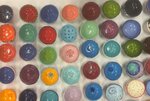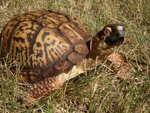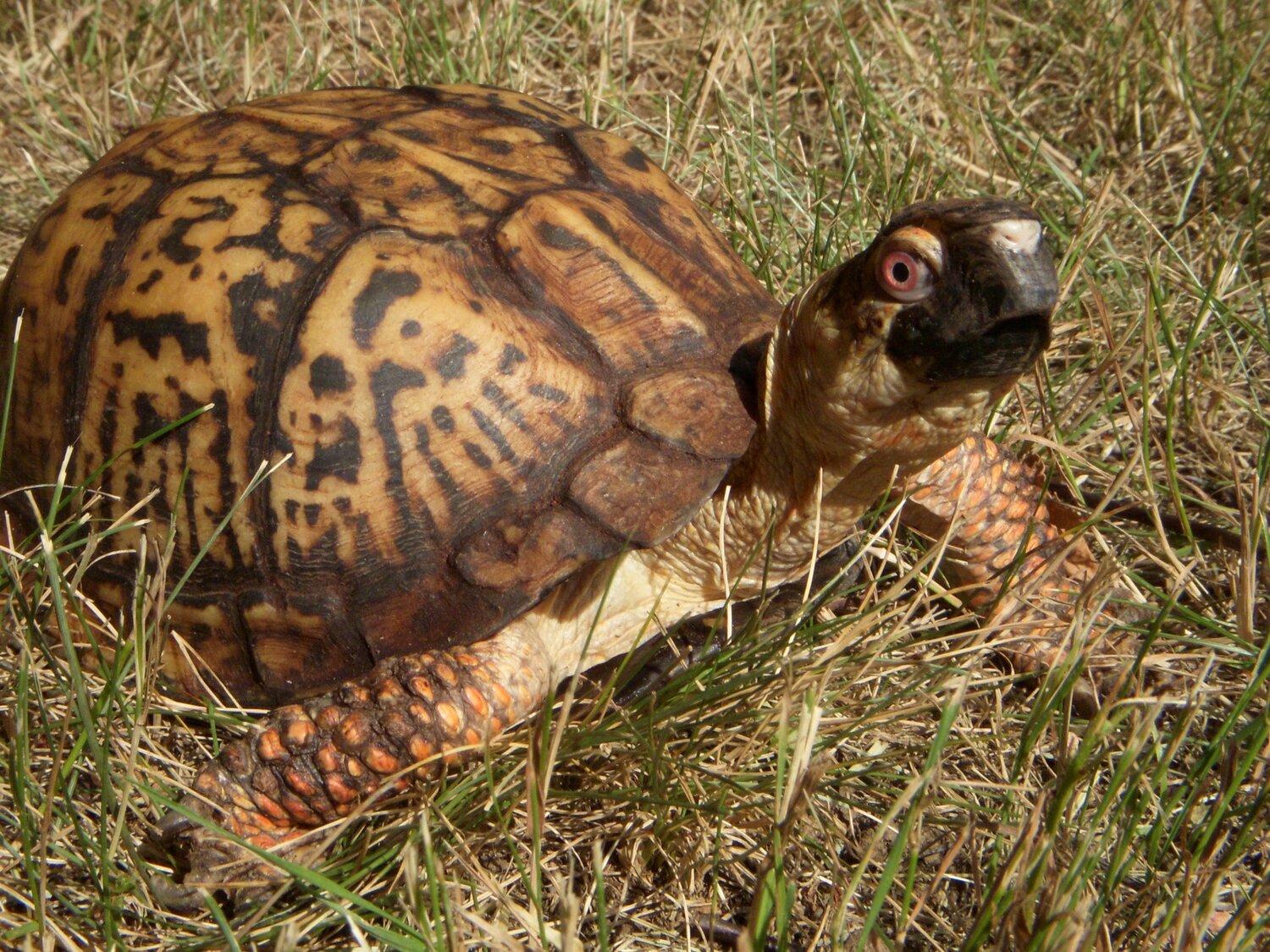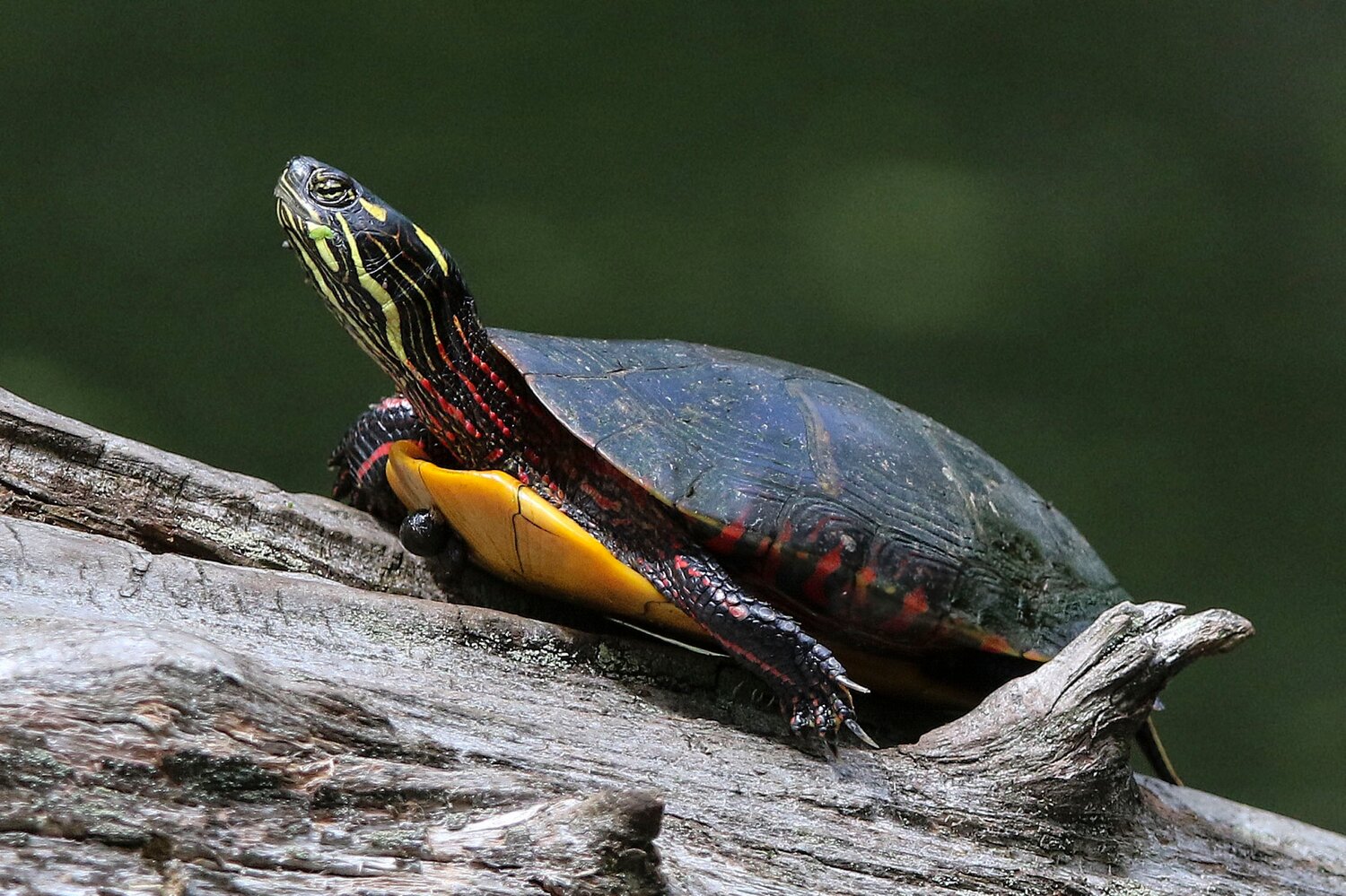It’s Turtle Crossing Season! Slow Down and Let Them Cross Safely.
Smithfield, RI (April 26, 2024) - In May and June, aquatic turtles such as the eastern painted turtle and American snapping turtle, will be leaving their watery habitats of ponds, rivers, and wetlands to set out and find suitable nesting sites to lay their eggs. For many, this includes crossing many of our busy roadways.
According to the Wildlife Clinic of Rhode Island, they received 40 turtles in 2023 that had been hit by cars, but only 10 were able to be rehabilitated. This is why it is so critical that drivers slow down when passing close to ponds, rivers, and wetlands in the spring.
Land turtles such as the eastern box turtle, and semi-aquatic species like the wood turtle, are also susceptible to road mortality. These turtles look for sandy or loamy soil in fields, open woods, and occasionally on people's lawns. Depending on the species, these turtles will dig one or more nests in the ground, deposit a clutch of eggs, and cover the nest. Having already crossed the road once, these turtles will cross yet again to return to their habitats. That’s a lot of time for a slow-moving turtle on a busy roadway.
The eggs deposited in spring will hatch in late August to early September. Many hatchlings will also attempt to cross roadways to reach watery habitats. Drivers can help ensure safe crossings by slowing down on the roads and watching for our native turtles.
You can help a turtle cross the road. Be aware and careful of passing cars. When safe, gently pick the turtle up with both hands (unless it is a snapping turtle) and move them in the direction that they are headed. Place the turtle a few feet off the road. Do not assume that they are going toward water, and please do not attempt to relocate them.
Rhode Island Division of Fish and Wildlife www.ri.dem.gov/natural-resources-bureau/fish-wildlife provides recommendations for handling turtles when helping them to cross roadways:
• Please support the turtle by holding them with two hands, one on each side of the shell between the front and back legs.
• Never hold a turtle just by its top shell or carapace, as this will hurt it, and will not give you a secure hold on it. You also do not want to grab a turtle by its tail, as this too will cause pain and injury.
• If it is a large turtle like a snapping turtle, gently shepherd it across the road with a stick or a broom or get help in herding a large snapping turtle across the road.
You can help alert drivers. Audubon is offering yard signs to alert drivers of potential turtle crossings and asking them to lower their speed. If you live near a pond or wetland, or have noticed turtles crossing in your neighborhood, please consider placing a turtle crossing sign in your yard for the months of May, June, August, and September. To obtain a sign for your yard, please send an email to audubon@asri.org. Audubon will respond with details. Note quantities are limited.
Road fatalities are not the only challenge that our native turtles face. The eastern box turtle, spotted turtle, and Rhode Island endangered diamond back terrapins are all seeing population decline due to habitat loss, climate change, disease and poaching for the illegal pet trade.
Wild turtles need to remain in the wild. Although many are charmed by our native turtles, any species found in the wild should never be kept as a pet. In Rhode Island, it is illegal to remove an any native reptile of amphibian from the wild, as many of them face severe population declines that could lead to local extinction.
Learn more about native turtles!
Audubon will be at the Harmony, RI library to celebrate World Turtle Awareness Day on May 23, 2024, at 5:00 pm. This free family program will have educational activities and feature a “meet and greet” with one of Audubon’s live turtle ambassadors. Register for this free program at www.Glocesterlibraries.org
Live turtles can also be observed at the Audubon Nature Center and Aquarium in Bristol, Rhode Island. Visitors can get up-close with a northern diamondback terrapin and an eastern painted turtle as well as discover other marine life found in local habitats and Narragansett Bay. For more information, visit www.asri.org/learn/naturecenteraquarium.




















Comments
No comments on this item Please log in to comment by clicking here